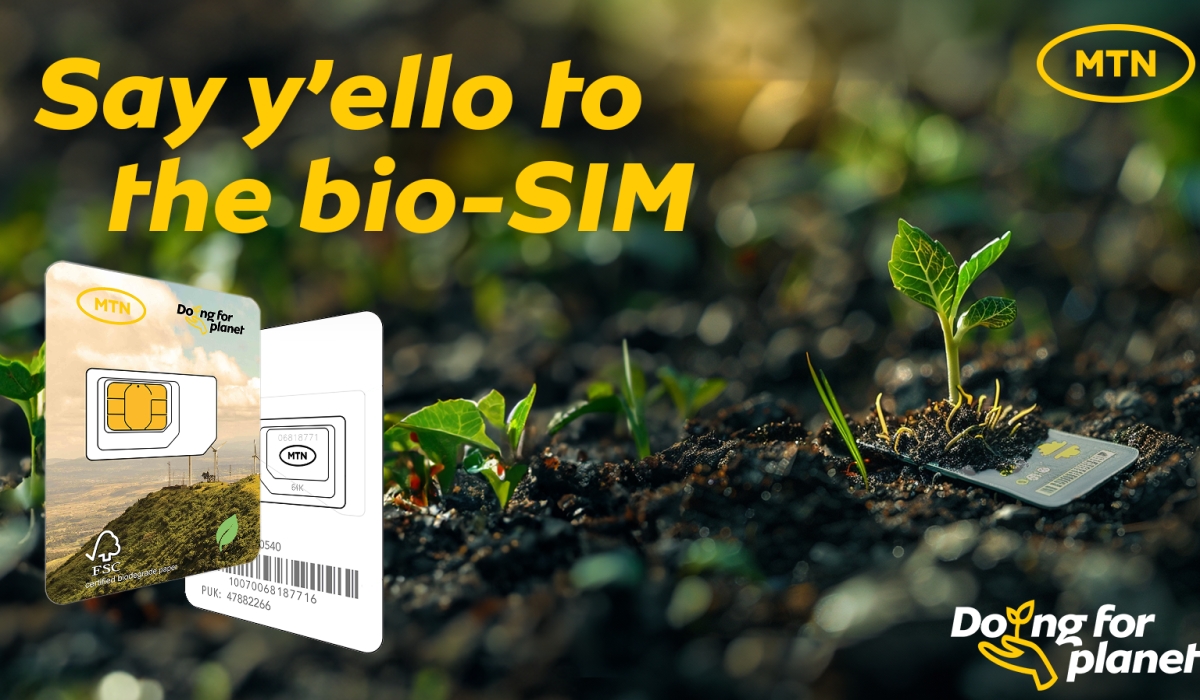In a significant move towards sustainability, MTN Rwandacell PLC (MTN Rwanda) has introduced the country’s first paper-based biodegradable SIM cards, a major advancement in the telecommunications sector’s push towards environmental consciousness. This initiative, referred to as “bioSIM,” underscores MTN Rwanda’s dedication to eco-friendly business practices and aligns with both global environmental efforts and local climate strategies.
A Shift Toward Environmental Responsibility
The global production of plastics totals approximately 430 million tonnes annually, severely impacting our oceans, rivers, and lakes with the equivalent of 2,000 garbage trucks of plastic waste disposed of every day. In response, MTN Rwanda, in line with the MTN Group Environmental Strategy, has launched these innovative SIM cards as part of a broader commitment to reduce the environmental footprint of its operations.
These new SIM cards are made from materials certified by the Forest Stewardship Council (FSC), ensuring they originate from responsibly managed forests that provide environmental, social, and economic benefits. This initiative not only supports Rwanda’s Green Growth and Climate Resilience Strategy but also positions MTN Rwanda as a leader in corporate responsibility and sustainable business practices.
Innovations for a Greener Future
During the launch, Mapula Bodibe, CEO of MTN Rwanda, emphasized the significance of this milestone in the company’s history “We are excited about the introduction of paper-based biodegradable SIMs in the country, a significant stride in our 25-year journey. Our dedication to aligning with Rwanda’s climate change strategy not only reflects responsible corporate citizenship but also echoes our core values of innovation and responsibility.”
Emphasizing the broader impact, Bodibe added, “By introducing paper-based SIM cards, we aim to set a precedent for responsible business practices and encourage other industries to join us in fostering a greener, more sustainable future for Rwanda and beyond.”
MTN Rwanda’s initiative is part of a broader strategy that includes the transition of 23% of its vehicle fleet to hybrid models and the installation of solar panels at key data centers, under the banner of MTN Project Zero. These actions contribute towards the MTN Group’s goal of achieving zero net carbon emissions by 2040.
Broadening Impact Beyond Telecommunications
Enzo Scarcella, MTN Group Executive Consumer Officer, also highlighted the broader implications of the initiative. “As a company deeply rooted in Africa, we are acutely aware of the environmental challenges facing our continent and the world,” Scarcella stated. “The introduction of our bioSIM is a testament to our dedication to sustainable practices and reducing our environmental impact.”
The launch of the bioSIM cards represents a critical step in integrating sustainable practices into the day-to-day operations of MTN Rwanda. It also encourages other industries to follow suit, fostering a more sustainable future for Rwanda and setting an example for global corporate responsibility. With such innovations, MTN continues to lead in providing digital solutions that promote progress while ensuring environmental stewardship.

